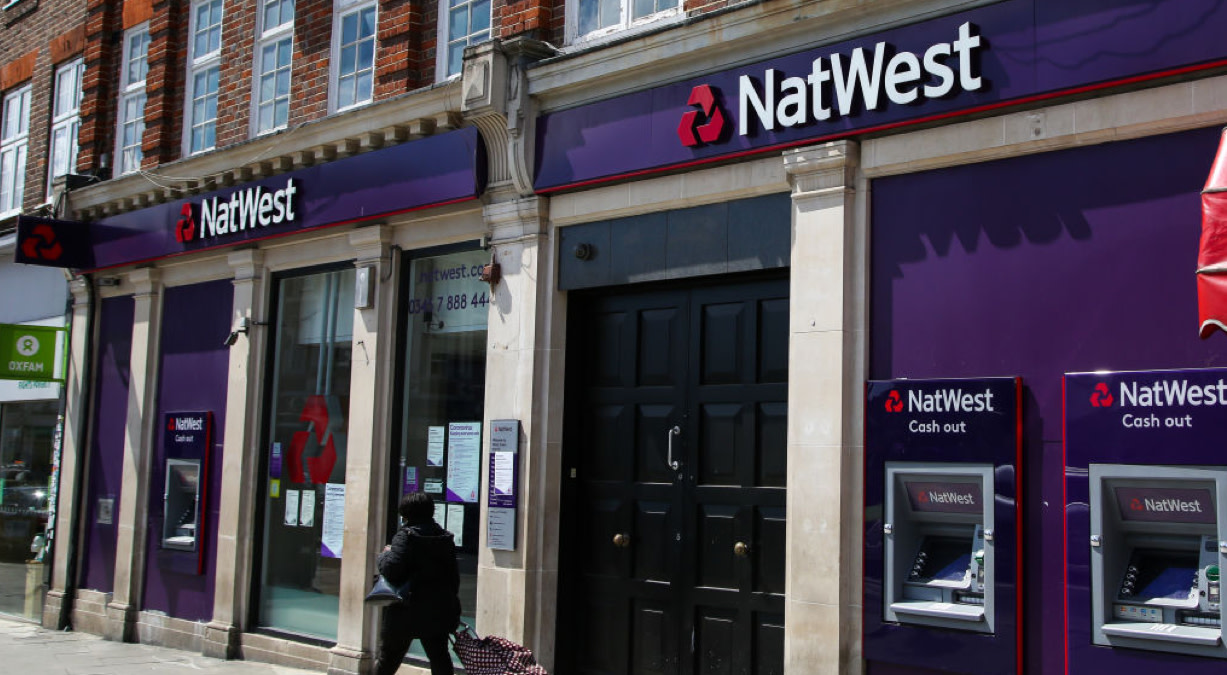British bank NatWest's first-quarter profit fell by a less than expected 27%, it said on Friday, having weathered a sector-wide squeeze on income from increased competition for savings, lending and mortgage products over the past year.
Rising central bank interest rates and political and media attention on the rates banks pay to savers have resulted in customers shopping around for better products, hitting retail banks across their core business lines.
NatWest's pretax operating profit for the three months to March 31 was 1.3 billion pounds ($1.63 billion), down from 1.8 billion pounds a year earlier and just above the average of analyst forecast of 1.2 billion pounds.
"This is an industry-wide trend and was expected by the market; it reflects some of the annualised impacts of changes in customer behaviour we saw in 2023," Chief Executive Paul Thwaite said of the profit fall.
Customers are moving from instant-access accounts, which typically pay very low interest, to higher-returning deposit products, Thwaite added.
Despite the challenges, the results showed NatWest in relatively rude health as it prepares to return to full private ownership for the first time since the 2008 financial crisis.
Shares in the company rose 3.5% to 300 pence on Friday morning, touching their highest since February 2023, and are up by nearly a third this year.
Analysts said the results showed the bank was coping with the increasingly competitive market, noting that its net interest margin - a closely watched measure of lending returns - rose to 2.05% after three consecutive quarters of declines.
"NatWest is best of the bunch. Lloyds and Barclays led the way this week and NatWest certainly hasn't disappointed with first-quarter results very nearly a clean sweep vs expectations," said Hargreaves Lansdown analyst Matt Britzman.
Barclays reported a slightly smaller than expected 12% fall in first-quarter profit this week while Lloyds Banking Group's 28% fall in pretax profit was in line with expectations.
NatWest is looking to end what its chairman this week called the "sorry tale" of its state ownership since the global financial crisis. It has been buying back shares while the government considers a further sale to retail investors to reduce its almost 29% stake.
Prospects of a sale have been helped by the bank's robust recent performance and signs that it is coping with Britain's economic stumbles.
Impairments, a closely-watched measure of loan losses, were 93 million pounds for the quarter, compared with analyst expectations of 186 million pounds.
($1 = 0.7998 pounds)
(Reporting by Lawrence WhiteAdditional reporting by Yadarisa ShabongEditing by Tommy Reggiori Wilkes and David Goodman)
Copyright (2024) Thomson Reuters.
This article was written by Lawrence White from Reuters and was legally licensed through the DiveMarketplace by Industry Dive. Please direct all licensing questions to legal@industrydive.com.

